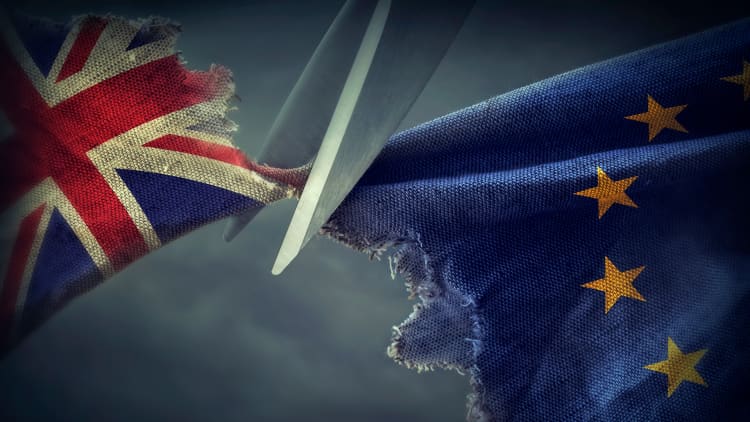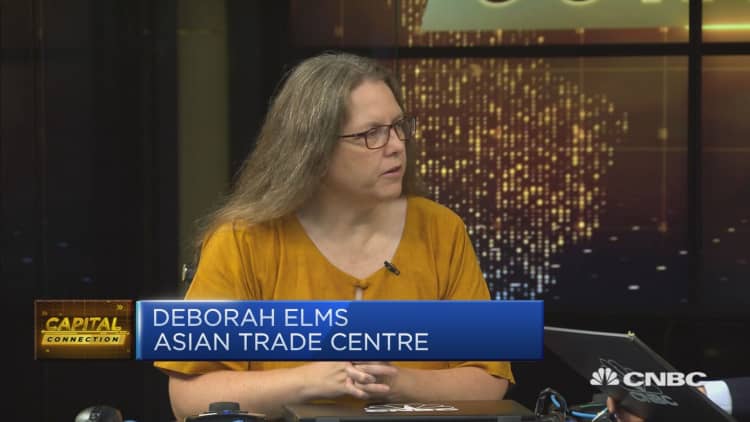There are "serious" divergences between the U.K. and the EU regarding the new trade deal that is due to be implemented by the end of the year, the European Union's chief negotiator said Thursday.
Officials from Brussels and Westminster had their first post-Brexit discussions this week in the Belgian capital. Their aim is to establish a new commercial relationship as well as new security agreements before the end of 2020. However, after four days of talks, they still seem far apart on what they want their new relationship to look like.
"To be completely frank with you … there are many divergences and they are very serious divergences, which is probably quite natural after a first round of negotiations," Michel Barnier, the EU's Brexit chief, told reporters.
The differences revolve around competition rules, fisheries and future oversight of the U.K.-EU relationship, Barnier explained. However, Barnier also told reporters that a trade deal is still possible, but only if there is mutual respect and no reneging on previous commitments.
A spokesperson for the British government later confirmed the significant differences between the two sides, according to Reuters, adding that the talks were going to be tough but had begun with a constructive tone.

The U.K. left the European Union on January 31. A transition period is ongoing and is set to last, at least, until the end of the year. The time is being used by negotiators to figure out a future relationship.
If the U.K. and the EU do not manage to overcome these differences, then their trade would be subject to World Trade Organization rules – potentially meaning higher costs for businesses on both sides of the English Channel.
U.K. Prime Minister Boris Johnson wants a Canada-style agreement with zero tariffs. This refers to a trade deal that the European Union negotiated with the North American country over seven years and concluded in 2014 — although it is yet to be fully ratified by national parliaments in Europe. The deal, named CETA (Comprehensive Economic and Trade Agreement), got rid of most of the tariffs between the EU and Canada. However, their level of trade is much smaller than the one between the U.K. and the EU.

The British government has also said that it will look at replicating a European deal with Australia if it can't make a deal based on the Canadian agreement. However, there is currently no such agreement between Australia and the EU, thus that reference point from the British government would mean trading on WTO terms — with higher costs for EU and U.K. businesses.
"You are not Canada, you are certainly not Australia," Amelie de Montchalin, the French secretary for EU affairs, said at a Chatham House meeting in London last week.
'The clock is ticking'
The U.K. has been putting pressure on the EU to finish the current set of talks this year, although they could still be extended until the end of 2022. However, Montchalin believes that the EU will cave in to "artificial deadlines."
"We do not accept time pressure," she said, "If we are not ready to sign any kind of deal … If the U.K. decides to shorten the negotiating period, it will the U.K.'s responsibility."


